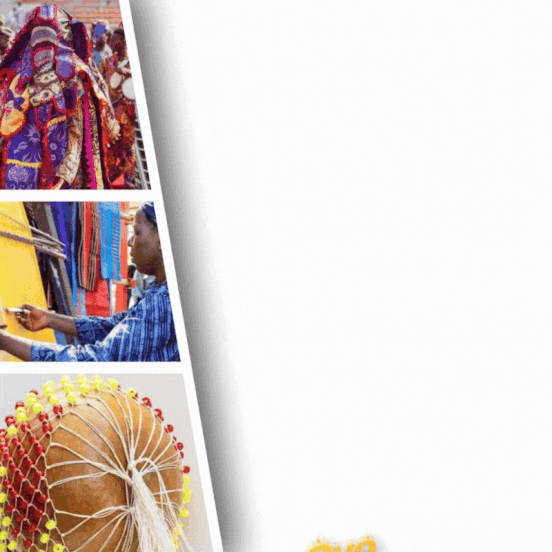Why Ooni of Ife and Alaafin of Oyo Cannot Agree
The simmering rivalry between the Ooni of Ife, Oba Adeyeye Enitan Ogunwusi, and the Alaafin of Oyo, Oba Abimbola Akeem Owoade, has once again burst into the public sphere following the conferment of a Yoruba-wide chieftaincy title on Ibadan businessman, Chief Dotun Sanusi. While the Ooni of Ife named Sanusi the Okanlomo Yorubaland, the Alaafin of Oyo issued a dramatic 48-hour ultimatum demanding a revocation, insisting that only the Alaafin holds the authority to bestow such titles across Yorubaland. The warning emphasised a long-standing rivalry between the two stools and important Yoruba monarchs over supremacy and traditional jurisdiction.
Although the Ooni of Ife had directed his aide to refrain from issuing a press statement in reply to the respected Oyo monarch, he, however, said he was leaving the matter to be handled in the public court of opinion, as it is already being treated. The Ooni’s spokesperson, Moses Olafare, dismissed the ultimatum, describing it as “undignifiable” and unworthy of a formal response. “We cannot dignify the undignifiable with an official response. Let’s rather focus on narratives that unite us rather than the ones capable of dividing us. 48 hours my foot!”
However now, this outburst has not only revived a centuries-old contest over supremacy in Yoruba traditional governance but has also reopened historical wounds between the two thrones. Following the Alaafin’s recent protest, history has reminded us to a similar discord in February 1991 between their predecessors, the late Alaafin of Oyo, Oba Lamidi Adeyemi III, and the late Ooni of Ife, Oba Okunade Sijuwade, over the conferment of the Akinrogun of Yorubaland title on Chief Tom Ikimi, then National Chairman of the National Republican Convention (NRC).
The Alaafin, in his letter, warned Ikimi against accepting the title from the Ooni, calling it spurious and lacking historical foundation. He cautioned that the acceptance would reduce Ikimi to “a laughing stock.” Oba Adeyemi maintained that the Ooni had no historical, traditional, political, or military authority outside Ile-Ife to fabricate Yoruba-wide titles.

At the time, Oyo State Governor Colonel AbdulKareem Adisa intervened, summoning an emergency meeting of traditional rulers and instructing that proposals for Yoruba-wide titles be vetted by his office to avoid acrimony. Quoting a legal maxim, Adisa said, “No one gives what he does not possess.” Yet, despite government directives, the Ooni proceeded with the conferment. Through his chiefs, Oba Sijuwade stressed that he was awarding the title “Akinrogun from the Source (Ile-Ife)” and reminded the Alaafin that his sword of office itself originated from Ife. The Ooni insisted that his powers were spiritual and universal, even declaring that he could withdraw the Alaafin’s crown, since it was originally sanctioned at the temple of Oduduwa.
This bold claim provoked outrage
However, the Alaafin of Oyo, in return, dared the Ooni to carry out the threat within 48 hours. He described the Ooni’s words as “blasphemy of the year”, arguing that no number of Oonis could dethrone the Alaafin since his authority rested on God, the will of the people, and history itself. The 1991 exchange, complete with government interventions, palace press statements, and public rebuttals, mirrors today’s confrontation almost word-for-word showing that the supremacy tussle is far from a new phenomenon.
Today, everyone must understand that the supremacy debate between Ife and Oyo goes back centuries. Historians such as Akinjogbin in 1992, Akintoye in 2010, and Adelegan in 2009 argue that the Ooni’s authority is spiritual and ancestral. As the cradle of Yoruba civilisation (Orisun), Ile-Ife is where Oduduwa dispersed his children to found kingdoms. Every crown, including that of the Alaafin, traces its legitimacy back to Ife. Without the Ida Ase (Oranmiyan’s sword of justice) from Ife, no Alaafin could be legitimately enthroned. Even until the 19th century, the Oba of Benin sent royal heads to Ife for burial.
Conversely, scholars like Samuel Johnson in 2009 and Ajuwon in 2014 and 2015 emphasise that Oyo, by the 16th century, had risen into a formidable empire, politically and militarily subjugating other Yoruba states, including Ife. The Alaafin bestowed powerful Yoruba-wide titles like the Aare Ona Kakanfo, collected tributes from subordinate rulers, and presided over Yoruba Obas’ councils. Oyo’s dominance was reinforced by colonial administrations, which made Oyo provincial headquarters and recognised the Alaafin as the political head of Yorubaland. Hence, Ife embodies spiritual primacy, while Oyo symbolises political supremacy, a duality that has always been in uneasy balance.
No one can argue that the supremacy question has often been manipulated for political purposes. During the First Republic, Ooni Adesoji Aderemi gained prominence through his alliance with Obafemi Awolowo’s Action Group, enjoying state recognition, while Alaafin Adeyemi, aligned with opposition forces, was sidelined. Later, the chairmanship tussles within the Oyo State Council of Obas reflected deeper struggles. Oba Adeyemi only accepted chairmanship after Osun State’s creation, but later resigned rather than serve under monarchs he deemed inferior.
Today, the controversy over Dotun Sanusi’s title shows that the age-old supremacy rivalry has not been buried by time. The current crisis raises critical questions: Is this really about history, or is it about ego? Do Yoruba monarchs risk reopening old wounds in pursuit of prestige, while their people grapple with insecurity, unemployment, and economic hardship? A Yoruba group, the Yoruba Heritage Forum insists that the Alaafin’s threats are historically unsustainable, citing colonial records that affirm Ife as the cradle of Yoruba civilisation. Others, however, argue that Oyo’s political might cannot be erased.
Now for the ordinary Yoruba person, however, the more urgent concern is unity: How can traditional leadership coexist without reviving rivalries that weaken the Yoruba nation? The Ooni and the Alaafin represent two essential pillars of Yoruba civilisation, the spiritual cradle at Ife and the political powerhouse at Oyo. History records moments when each acknowledged the other’s importance.
Perhaps the real challenge of the 21st century is not to determine who is supreme, but how both stools can share custodianship in a way that strengthens unity. Whether the Okanlomo Oodua title is symbolic or provocative, it has rekindled an eternal debate, who truly leads the Yoruba, the father at Ife’s cradle or the general at Oyo’s empire? Until consensus emerges, the Yoruba nation remains caught between two crowns, two histories, and two visions of supremacy.

